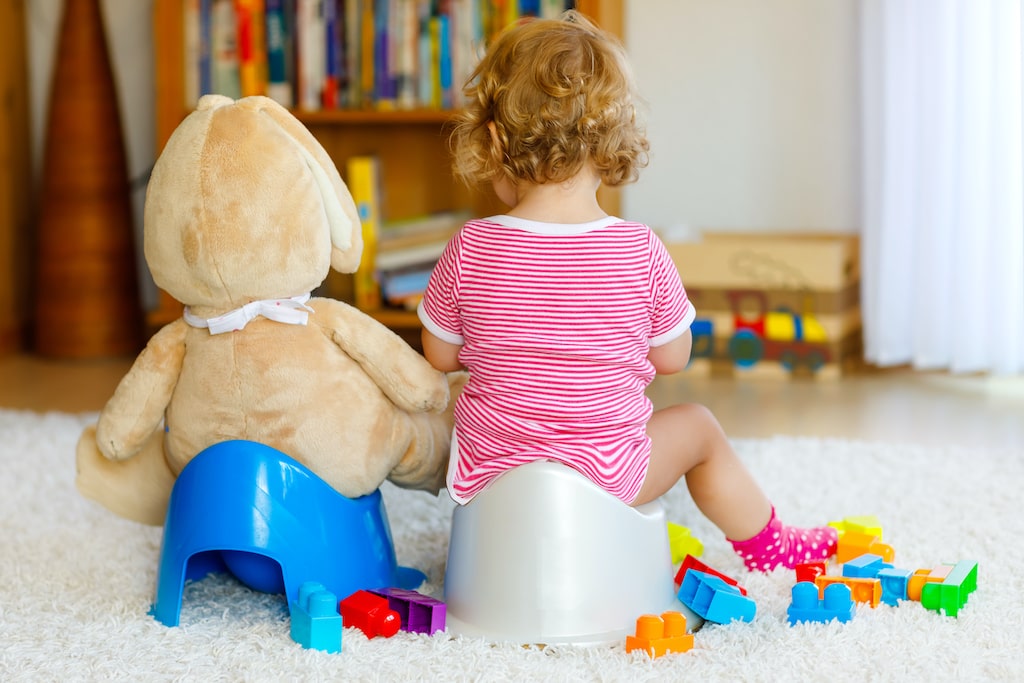
Table of Contents
Introduction
Potty training is an important milestone in a baby’s development. It is a significant step towards independence and self-sufficiency. However, it is not always an easy feat to achieve. Every baby is different, and therefore, their potty training experience can differ too. There is no right or wrong way to go about it. But with a little bit of patience, consistency and positive reinforcement, you can help your baby get there.
When to Start Potty Training?
The ideal age to start potty training varies from child to child. Typically, most babies are ready to start potty training between the ages of 18 to 24 months. However, some babies may show signs of readiness earlier or later. Some signs that indicate that your baby is ready to start potty training include:
- Showing an interest in using the potty
- Being able to communicate their needs and wants
- Staying dry for longer periods of time
- Having regular bowel movements
- Being able to pull down and up their pants independently
How to Prepare for Potty Training?
Before you start potty training, it is important to prepare both yourself and your baby for the process. Here are a few things that you can do to prepare for potty training:
- Stock up on potty training essentials like a potty chair, training pants and wipes
- Make potty time fun and exciting by reading books or singing songs
- Set a routine and stick to it to establish consistency
- Be patient and avoid punishing your baby for accidents
- Offer positive reinforcement and rewards for successful potty trips
The Potty Training Process
The potty training process can be divided into three stages:
Stage 1: Introduction
In this stage, you will introduce your baby to the concept of using the potty. You can do this by placing the potty chair in a convenient location and encouraging your baby to sit on it. It is important to remain positive and patient during this stage and avoid pressuring your baby.
Stage 2: Practice
Once your baby is comfortable sitting on the potty chair, you can start practicing using it. You can do this by taking your baby to the potty chair at regular intervals, such as after meals or naps. It is important to establish a routine and stick to it during this stage.
Stage 3: Independence
In this stage, your baby should be able to use the potty chair independently. However, accidents may still happen, and it is important to remain patient and offer positive reinforcement.
Frequently Asked Questions
Q: Can I start potty training before my baby is ready?
A: It is not recommended to start potty training before your baby is ready as it may cause unnecessary stress and anxiety for both you and your baby.
Q: What if my baby has accidents?
A: Accidents are a natural part of the potty training process. It is important to remain patient and offer positive reinforcement for successful potty trips.
Q: How long does it take to potty train a baby?
A: The length of time it takes to potty train a baby varies from child to child. However, with patience, consistency and positive reinforcement, most babies can be potty trained within a few weeks to several months.
Q: Should I use a potty chair or a toilet seat insert?
A: The choice between a potty chair or a toilet seat insert depends on your preference and your baby’s comfort level. Some babies prefer a potty chair as it is smaller and more comfortable, while others prefer a toilet seat insert as it is more similar to an adult toilet.
Q: What if my baby is resistant to potty training?
A: Some babies may be resistant to potty training due to fear, anxiety or a lack of interest. It is important to remain patient, avoid pressuring your baby, and offer positive reinforcement for successful potty trips.
Conclusion
Potty training is a significant milestone in a baby’s development. Every baby is different, and therefore, their potty training experience can differ too. It is important to be patient, consistent and offer positive reinforcement during the potty training process. Remember that accidents are a natural part of the process, and it is important to remain positive and avoid punishing your baby. With a little bit of patience and consistency, you can help your baby achieve this important milestone in their development.
Related Topics:
- Baby Development Tips
- Baby Playtime Activities
- Baby Sleep Training
